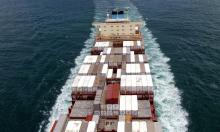France, Spain and Britain celebrate bicentennial of Trafalgar battle
Descendants of sailors who fought in the battle of Trafalgar joined military leaders from France, Spain and Britain on Friday to mark the 200th anniversary of the last great naval confrontation of the age of sail. A solitary bell tolled as representatives of the three navies involved in the battle read out the names of the 60 ships that blasted one another with cannon and musket fire not far from this port city in southwestern Spain. Sailors, soldiers and clergy paid homage in the seaside park to the more than 7,000 dead.
The battle on Oct. 21, 1805, in which Britain's Adm. Horatio Nelson defeated Napoleon Bonaparte's combined French and Spanish fleets, was one of the defining naval confrontations in history.
Spanish Defense Minister Jose Bono led a religious service at a naval base, and descendants of the fleet commanders laid wreaths as choral music was played. Commemorations were also being held in Portsmouth, England.
"It was very moving," said Count Andre de Villeneuve, a fifth generation descendant of the French admiral who commanded the Franco-Spanish fleet that sailed from Cadiz into Cape Trafalgar on that fateful day.
"At the same time it is a sort of reconciliation between former combatants 200 years after the event. It shows we don't forget the horror and sacrifice of that battle," Villeneuve said.
Victory at Trafalgar by the British navy secured the country's control of the world's sea lanes and heralded more than a century of global maritime supremacy. For Spain and France, it marked the end of sea power, presaged the eventual fall of Napoleon, who ruled both countries, and signaled the beginning of the end for Spain's vast colonial empire.
The architecturally elegant port city of Cadiz, launching point for many of Spain's most audacious voyages of discovery in the 15th and 16th centuries, was chosen to host the event due to its proximity to the location of the battle.
It was from Cadiz that French Adm. Pierre Charles Villeneuve, aboard the Bucentaure, led a joint French-Spanish fleet of 33 warships, 18 French and 15 Spanish, out to sea on Oct. 19, 1805, to attack British shipping in the Mediterranean. Offshore lay Nelson's 27 ships, according to the AP.
The battle began shortly after noon on Oct. 21, and by evening the shattered Bucentaure had surrendered, Villeneuve was a prisoner and the Franco-Spanish alliance had lost 22 ships, the British none.
As the remains of Villeneuve's force tried to disengage and limp to the safety of shore more bad luck was in store. The French ship Achille, which had caught fire, exploded and the rest of the fleeing fleet was hit by a savage storm that drowned many battle-weary survivors.
T.E.
Subscribe to Pravda.Ru Telegram channel, Facebook, RSS!





